The
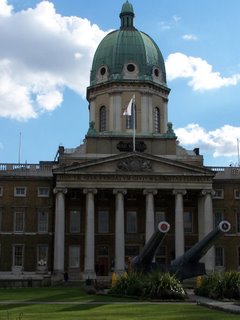
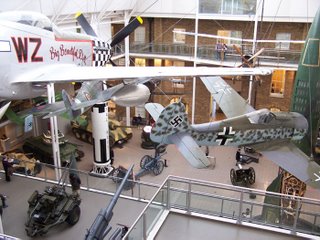
The impact of war on civilians was staggering - lots of Australians lost family in the World Wars, but mostly they were soldiers far from home: military personnel made up over 90% of war casualties in those days (in modern warfare, some 90% are civilian deaths). Even so, more than 60,000 Londoners died in the Blitz – about the same number as in Dresden in Germany – including almost 8,000 children, many of whose playmates were never told about the fate of their friends, most parents preferring to lie and say ‘Tommy’s been evacuated’. I suppose it was the prevailing wisdom at the time, but hiding such difficult truths doesn’t make them less true – I’d find that attitude appalling nowadays.
Lightheartedness aside, this was a really sobering afternoon. I’m glad I went – it gave me a whole new perspective, bringing the impact of conflict closer to home.
The rest of my Wednesday was much more lighthearted – I caught up with the fabulous Sheree and Glenn, whose blog inspired me to set up this humble offering. Sheree works for Price Waterhouse Coopers’ and scored a stint in the office over here, her partner Glenn has the same visa as me – he’s working at Sotheby’s – and oh the tales he has about how the other half lives, with their million pound paintings and high living. It seems such a waste - conspicuous consumption gets right up my nose lately, although I know I’m in the wrong city for that kind of attitude…
And my high morals didn’t stop me from enjoying dinner by the
The riverside by night is really stunning – for the first time, I guess, I started to feel as though I’m “in
Far too merry to try to navigate the Tube alone, I stayed over in town (thankyou guys!) and set out on foot to explore the next day.
Morning saw me wandering through the houses of parliament at Westminster (the Abbey will have to wait until my London Pass arrives), Whitehall, Downing St...
The highlight for me though, was the Jewell tower, one of the only parts of the old palace to remain (this also let me ‘christen’ my English Heritage card).
The tower itself has been extensively repaired, and only the bottom storey is in good nick, although for history buffs, it has some awesome architectural features. However, the upstairs floors have a lively, detailed history of the development of parliamentary democracy in England, from the Witangamots of the 8th century Saxon kings through the Conqueror’s Great Councils and King John’s Magna Carta (which entitled wealthy Londoners to elect a Mayor, among many other things), the impact of Henry VIIIs Reformation (expelling bishops from the emerging House of Lords) all the way through to the evolution of political parties, the role of Prime Minister, and votes for women (truly equal suffrage was finally granted in 1928). Maybe not everyone’s idea of a funky morning, but for a political nut like me, it was fascinating to learn how historical events have shaped so much of the political traditions we have in
I’ll make no comment on democracy in principle and democracy in practice, but this visit did remind me that we get the politicians we deserve, and that in years past, people have demanded – and achieved – enormous change.


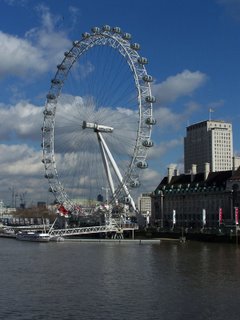
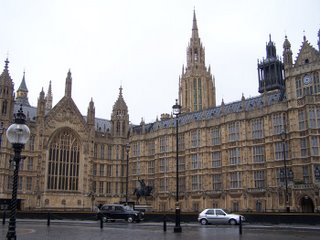
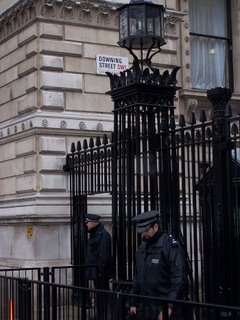
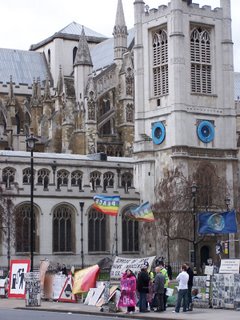
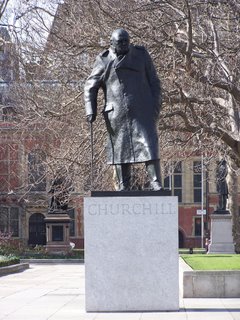
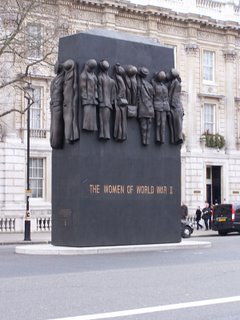

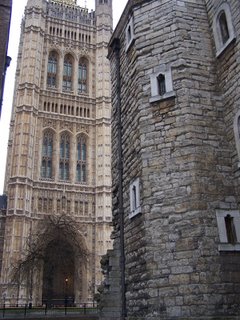

No comments:
Post a Comment